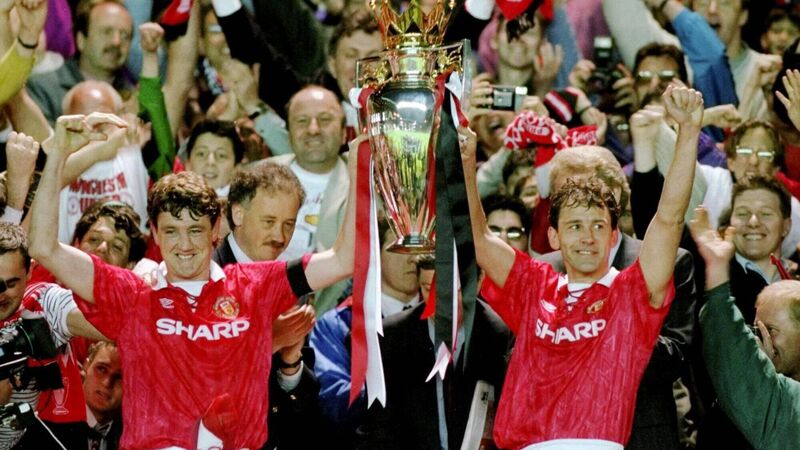Larry Ryan: The three pillars on which the Premier League was built

Steve Bruce and Bryan Robson lift the Premiership trophy in 1993 for Manchester United. To the United faithful it opened the gates to the great modern love affair with the Premier League.
There was one loud warning klaxon during the first episode of the new BBC series .
Central to the opening installment was Manchester United’s famous win over Sheffield Wednesday in April 1993 that drew them closer to that inaugural crown in the season football began.









